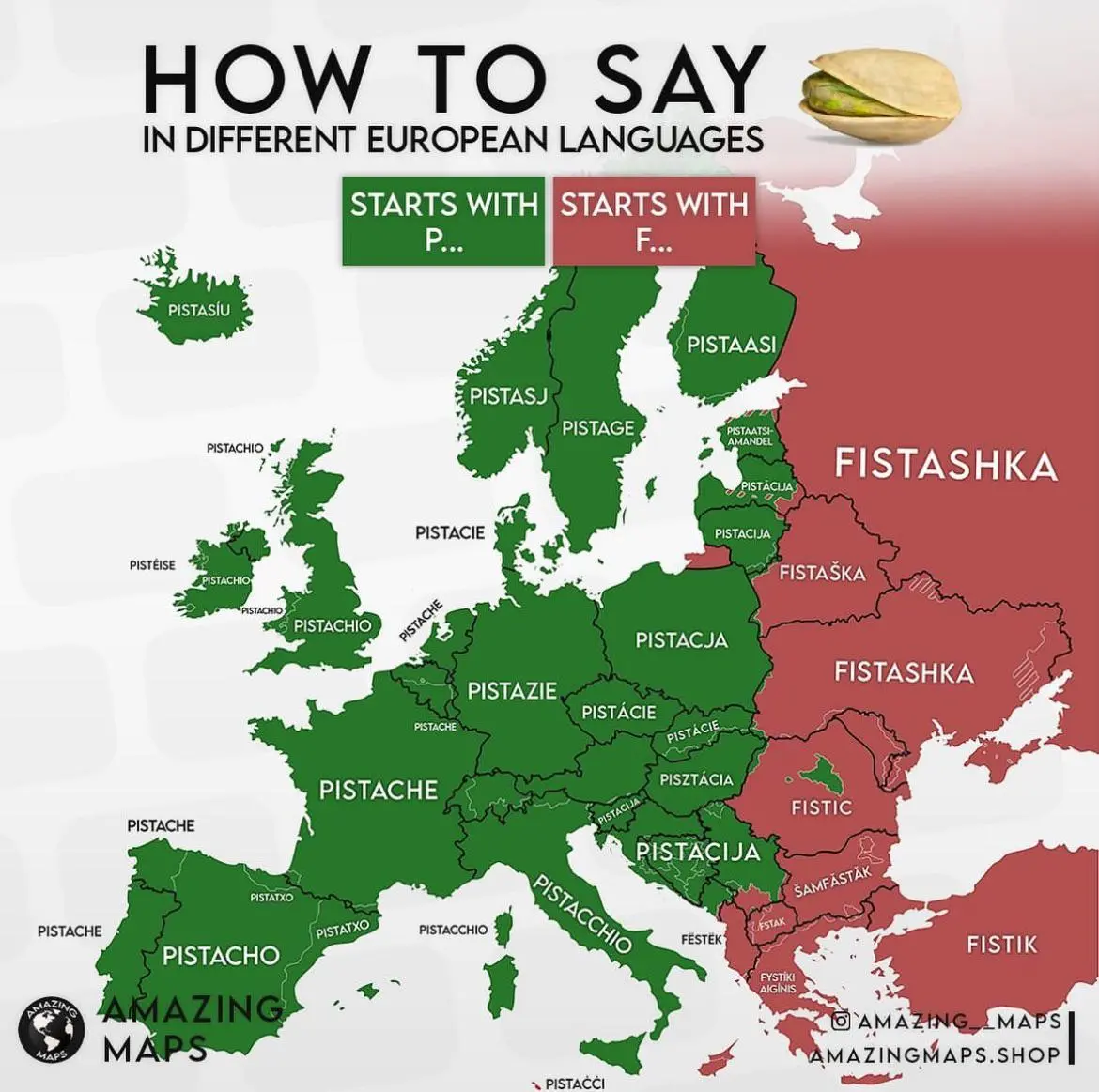this post was submitted on 24 Dec 2023
101 points (93.2% liked)
Linguistics Humor
201 readers
2 users here now
Do you like languages and linguistics ? Here is for having fun about it
For serious linguistics content: [email protected]
Rules:
- 1- Stay on Topic
Post about linguistics or language humor & memes - 2- No Racism/Violence
- 3- No Public Shaming No shaming someone that could be identifiable or recognizable
- 4- Avoid spam and duplicates
founded 2 years ago
MODERATORS
you are viewing a single comment's thread
view the rest of the comments
view the rest of the comments

The origin seems to be Persian (from where the plant comes actually as many other fruits) from which the word entered as a loan to ancient Greek (πιστάκιον) and later Latin (pistācium).
Interestingly enough from middle Persian "pstk'" the initial sound became aspirated (like the "Farsi" name itself for the modern language from Middle Persian "Pārsīk").
And by Turkish/Ottoman domination the f- variant spread in the Middle East.
A lot of fruits, trees and nuts come from Persia... the name of the "peach" in some European languages is closely related to it, for example English "peach" from old French "pesche" is a contraction of medieval latin "persica", cfr Romanian "piersică", Italian "pesca" (and in some Italian dialects it's called "persica"/"persego") and similar variations.
Relevant detail: Ottoman Turkish ⟨فستق⟩ fıstık borrowed it from Arabic ⟨فُسْتُق⟩ fustuq, that borrowed it from Middle Persian - the same variety as Greek and then Latin did. So odds are that the f-variation was caused by Arabic rendering a foreign [p] as [f], and probably predates Persian itself internally undergoing a p→f shift. Source.